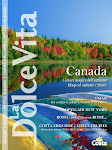Summary
There is an underlying threat from terrorism. Attacks could be indiscriminate, including in places frequented by expatriates and foreign travellers.
The main types of incidents for which British nationals required consular assistance in Bulgaria in 2007 involved petty crime and, replacing lost or stolen passports. You should be aware of young pickpockets in city centres and tourist resorts especially in crowded areas e.g. buses, trains and busy streets. Keep valuable belongings in a hotel safe where possible. If you need to contact the emergency services in Bulgaria call 112.
You should carry a copy of the information pages of your passport at all times as proof of identity.
We strongly recommend that you obtain comprehensive travel and medical insurance before travelling. You should check any exclusions, and that your policy covers you for the activities you want to undertake.
Local Travel
Most cities and larger towns have cheap and extensive public transport. There are regular bus services between most major towns in the country. There are several car-hire companies, including Hertz and Avis. It is possible to fly between Sofia and the two major towns on the Black Sea coast, Varna and Bourgas. If travelling on a domestic air flight, you should have your passport ready for inspection.
Taxis are plentiful and cheap, although vehicles may not be in very good condition. Most taxis are metered and the yellow taxis are generally considered reliable. It is advisable, however, to check the tariffs on the vehicle window before boarding as they can vary considerably. At Sofia airport you should use a taxi from one of the two companies (OK and Express) operating the official rank. From Varna Airport "Stil" Taxi and from Bourgas Airport "Srebrin Argirov -ORAK" companies operate the official rank.
Road Travel
If you enter Bulgaria in a private vehicle, you must have your driving licence, all original registration and ownership documents (including logbook) as well as evidence of insurance valid in Bulgaria. If you have hired a car you must have the original contract document, which should state that the vehicle can be brought into Bulgaria. Border officials will impound your vehicle if they are not satisfied that you own it or have permission to use it in Bulgaria.
Tolls are charged on motorways and main roads out of town. These are payable in Euros. The rate for cars is currently €5 for a one week vignette and €12 for one month. Rates are much higher for freight vehicles and coaches for eight or more passengers. Vignettes can be purchased at ports and border points, and are also available from post offices, large petrol stations and DZI bank offices. You will be fined if you do not carry the appropriate vignette.
Under Bulgarian law, vehicles that are registered outside the EU are considered to be ‘temporarily imported’ when driven inside Bulgaria. If they are stolen on Bulgarian soil, the owners will be liable for import duty and related taxes. Cars registered in the Channel Islands and the Isles of Man are subject to this legislation.
Take care when driving, particularly at night. Many roads are in poor condition and road works are often unlit or unmarked. Driving standards are generally poor. Avoid confrontations with aggressive drivers who may be armed. You should observe the speed limit and ensure that your vehicle is roadworthy. Spot fines are charged for minor violations.
Some criminals have been reported to impersonate traffic policemen and impose “fines” or even steal vehicles and personal belongings on major routes . If you are crossing Bulgaria by car, you should try to travel in daylight hours.
Rail Travel
If travelling by train, you should check with operators on the availability of sleeping compartments and whether bicycles can be taken on board. This may vary between regions, and there may be additional charges. Thieves operate on trains, so take particular care that documents and other valuables are safe. The train system is very poor by European standards and most Bulgarians prefer to travel by inter-city buses, which are frequent, relatively fast and comfortable.
Local laws and customs
The Bulgarian authorities treat all drug-related (including possession) and or sex offences very seriously (the age of consent is 16). Custodial sentences can be expected for any foreigners convicted of such offences. Offences relating to drunken, disorderly behaviour and hooliganism may also be treated more seriously than in the UK.
Homosexuality is no longer illegal, but Bulgarians tend not to be very open about the subject and the gay community generally keeps a low profile. There are a few gay bars and clubs in Sofia and, to a lesser extent, in other major towns in Bulgaria.
Be careful if you are taking photographs in security-sensitive areas such as airports. If in doubt, ask permission.
Visas
If you wish to visit Bulgaria for longer than three months, and/or reside in Bulgaria on a more permanent basis exercising an EU Treaty right (for example as a worker, student, self-employed person or self-sufficient person), you will need to register with the police to obtain the appropriate permit. Dual nationals of Bulgaria and any other country should enter and exit Bulgaria on their Bulgarian passports. It is always advisable to carry your Bulgarian travel document with you as well as that of your second nationality.
Passport Validity
All citizens, including EU citizens, should ensure that their passports are valid for at least three months after their departure from Bulgaria.
Currency regulations
If you wish to enter or leave Bulgaria with cash of any currency amounting to the equivalent of Leva 8000 (approx. £3,000) or more, you must declare it to customs officials. If you wish to export cash of any currency amounting to the equivalent of Leva 25,000 (approx. £9,000) or more, you will be required to show documentation showing the origin of the funds and proof that no outstanding liabilities are owed to the National Revenue Agency.
New legislation on the controls of cash entering or leaving the EU also applies in all EU Member States. Any person entering or leaving the EU has to declare the cash they are carrying if this amounts to €10,000 or more; this includes cheques, travellers' cheques, money orders, etc. This does not apply to anyone travelling via the EU to a non-EU country, as long as the original journey started outside of the EU, nor to those travelling within the EU.
Travelling with children
All children entering Bulgaria will need to have their own passport. Children included in parents' passports will only be allowed in if the passport also contains their photograph. Single parents or other adults travelling alone with children should be aware that some countries require documentary evidence of parental responsibility before allowing lone parents to enter the country or, in some cases, before permitting children to leave the country.
Money
There are many exchange bureaux in Bulgaria that normally exchange all major currencies. However, check the rates of exchange before making a transaction and where possible, you should change money in banks or in large hotels. If you have travellers’ cheques you may need to go to a bank anyway.














No comments:
Post a Comment